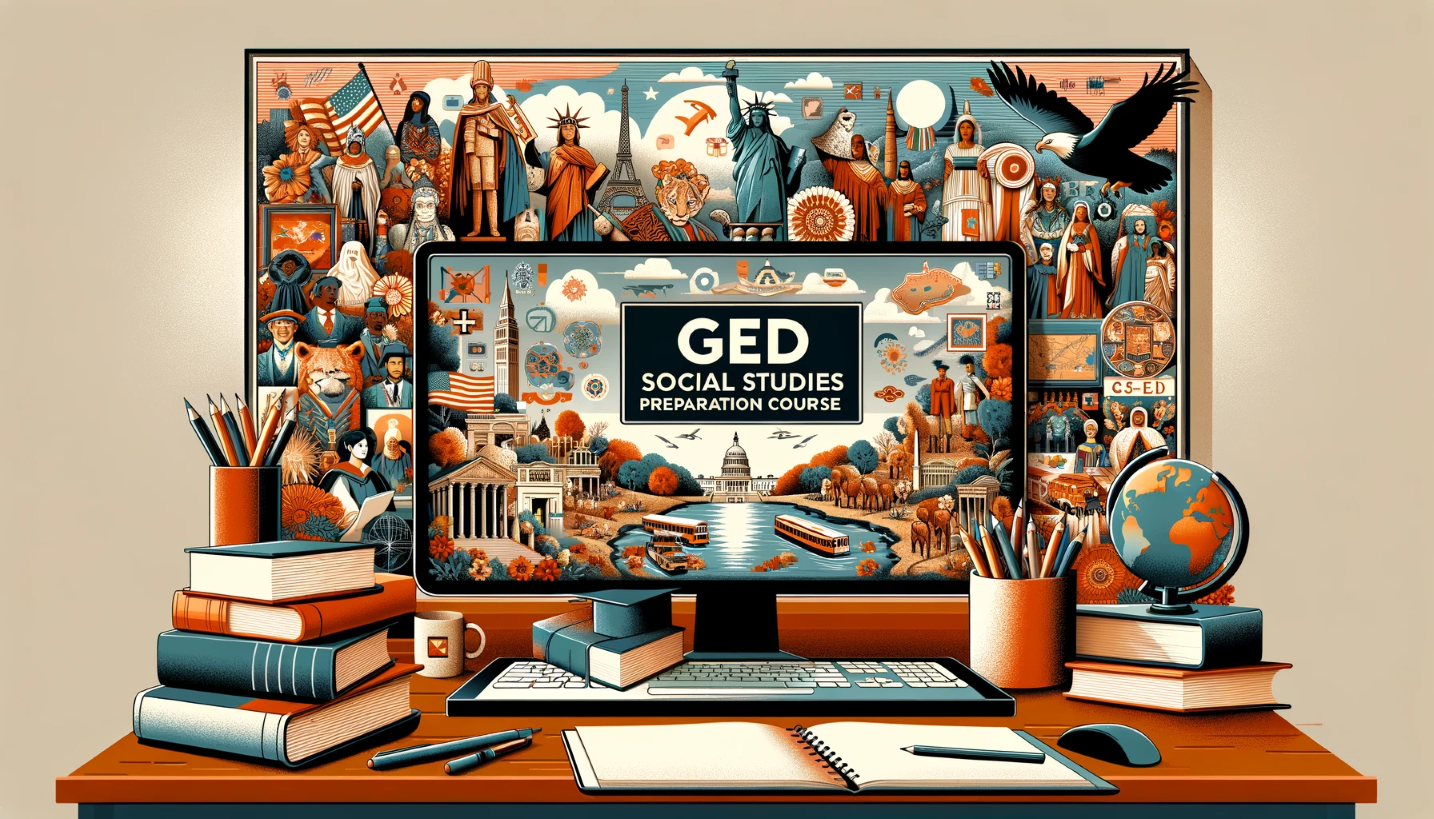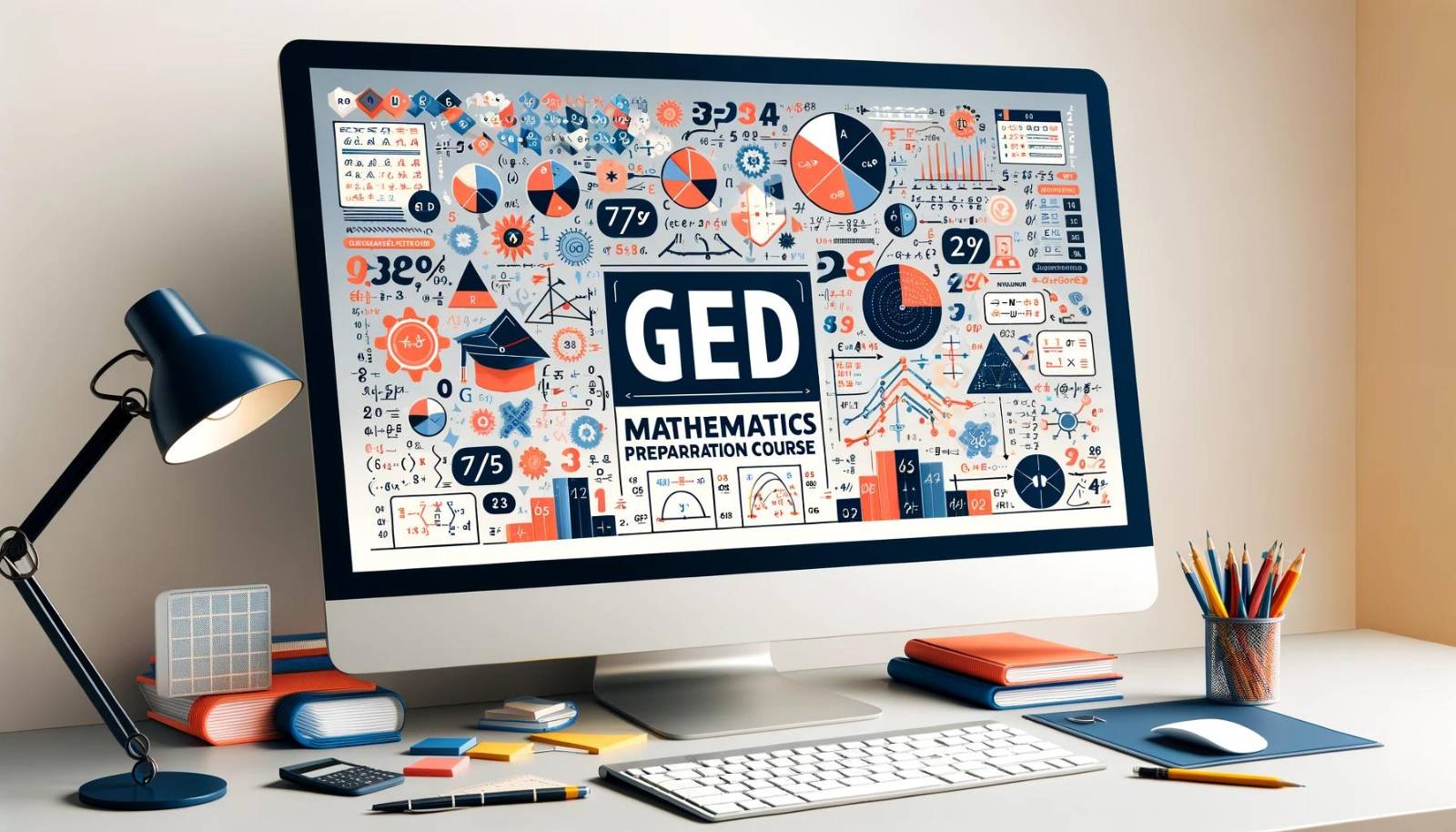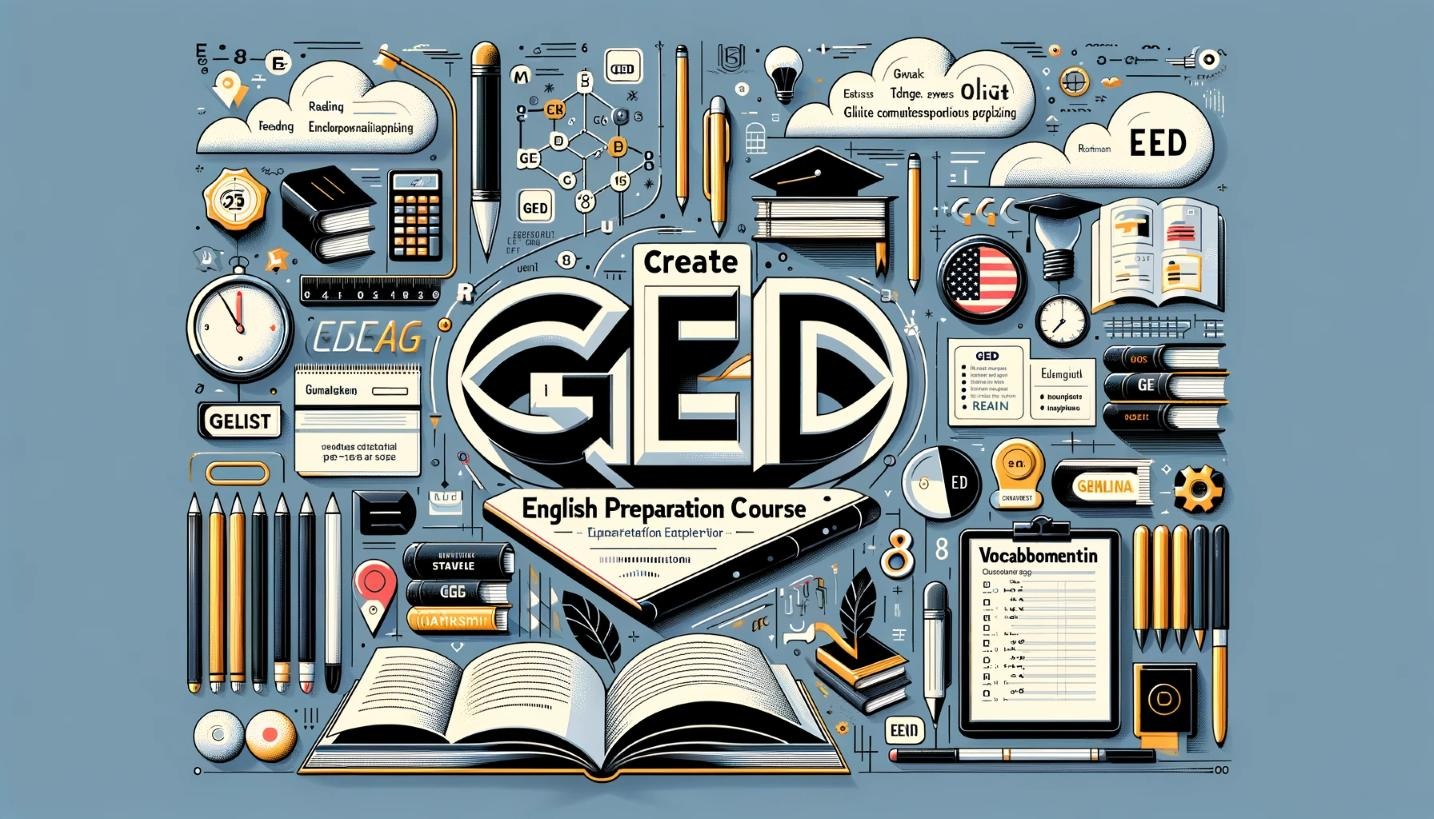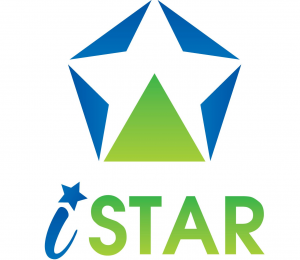
The GED Social Studies test measures your knowledge of history, geography, government, and economics. It is 70 minutes long and features 50 multiple choice questions. The content on the test breaks down like this.
History (Canada, 25%; World, 15%), Geography (15%), Civics and government (25%), and Economics (20%).
-
Civics and Government topics include modern and historic governments, constitutional government, levels and branches of the U.S. government, the electoral system, and the role of the citizen.
-
U.S. History topics stretch from colonialism and the American Revolution through the Civil War and Reconstruction into the modern era of industrialization, immigration, two world wars, the Cold War, and the movements for equal rights.
-
Economics topics include basic economics concepts and systems, the government and the economy, and labor and consumer economics issues.
-
Geography and the World topics cover major stages in world history as well as the relationship among resources, the environment, and societies.
More importantly, it covers broad skill topics:
-
Determine Central Ideas, Inferences, Hypotheses, and Conclusions.
-
Analyze Words, Events, and Ideas in Social Studies Contexts.
-
Analyze Author’s Purpose and Point of View.
-
Evaluate Author’s Reasoning and Evidence.
-
Analyze and Integrate Relationships Within and Between Social Studies Materials.
-
Interpret Data and Statistics in Graphs and Charts.
-
Find the Center in a Statistical Data Set, Including Average, Median, and Mode.
- Teacher: Zin Mar Tun

There are three main parts in this subject.
Life Science (40%) topics include cell structures and processes, human body systems, health and nutrition, heredity and reproduction, genetics and DNA, evolution and natural selection, and the organization of ecosystems.
Earth and Space Science (20%) topics include the structure of Earth, plate tectonics, geological cycles and processes, renewable and nonrenewable
natural resources, weather and climate, the solar system, and the universe.
Physical Science (40%) topics include atoms and molecules, properties and states of matter, chemical reactions, energy and work, motion and forces, waves, electricity, and magnetism.
- Teacher: Khaing Lynn

- Teacher: Khaing Lynn

- Teacher: Sayarma Clary

The GED Social Studies test measures your knowledge of history, geography, government, and economics. It is 70 minutes long and features 50 multiple choice questions. The content on the test breaks down like this.
History (Canada, 25%; World, 15%), Geography (15%), Civics and government (25%), and Economics (20%).
-
Civics and Government topics include modern and historic governments, constitutional government, levels and branches of the U.S. government, the electoral system, and the role of the citizen.
-
U.S. History topics stretch from colonialism and the American Revolution through the Civil War and Reconstruction into the modern era of industrialization, immigration, two world wars, the Cold War, and the movements for equal rights.
-
Economics topics include basic economics concepts and systems, the government and the economy, and labor and consumer economics issues.
-
Geography and the World topics cover major stages in world history as well as the relationship among resources, the environment, and societies.
More importantly, it covers broad skill topics:
-
Determine Central Ideas, Inferences, Hypotheses, and Conclusions.
-
Analyze Words, Events, and Ideas in Social Studies Contexts.
-
Analyze Author’s Purpose and Point of View.
-
Evaluate Author’s Reasoning and Evidence.
-
Analyze and Integrate Relationships Within and Between Social Studies Materials.
-
Interpret Data and Statistics in Graphs and Charts.
-
Find the Center in a Statistical Data Set, Including Average, Median, and Mode.
- Teacher: Zin Mar Tun

There are three main parts in this subject.
Life Science (40%) topics include cell structures and processes, human body systems, health and nutrition, heredity and reproduction, genetics and DNA, evolution and natural selection, and the organization of ecosystems.
Earth and Space Science (20%) topics include the structure of Earth, plate tectonics, geological cycles and processes, renewable and nonrenewable
natural resources, weather and climate, the solar system, and the universe.
Physical Science (40%) topics include atoms and molecules, properties and states of matter, chemical reactions, energy and work, motion and forces, waves, electricity, and magnetism.
- Teacher: Sayarma Clary
- Teacher: Khaing Lynn

- Teacher: Sayarma Clary
- Teacher: Khaing Lynn

- Teacher: Sayarma Clary
